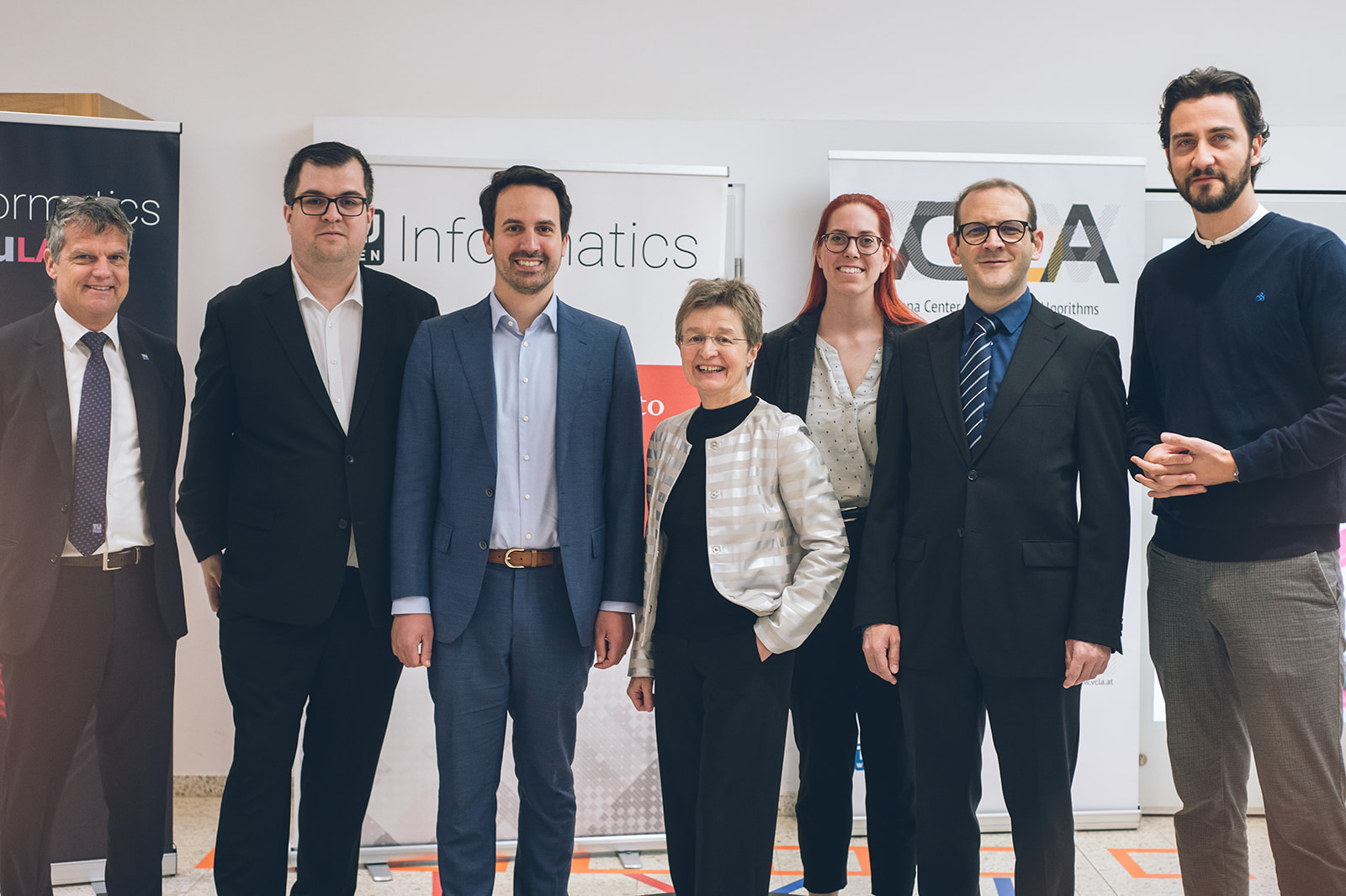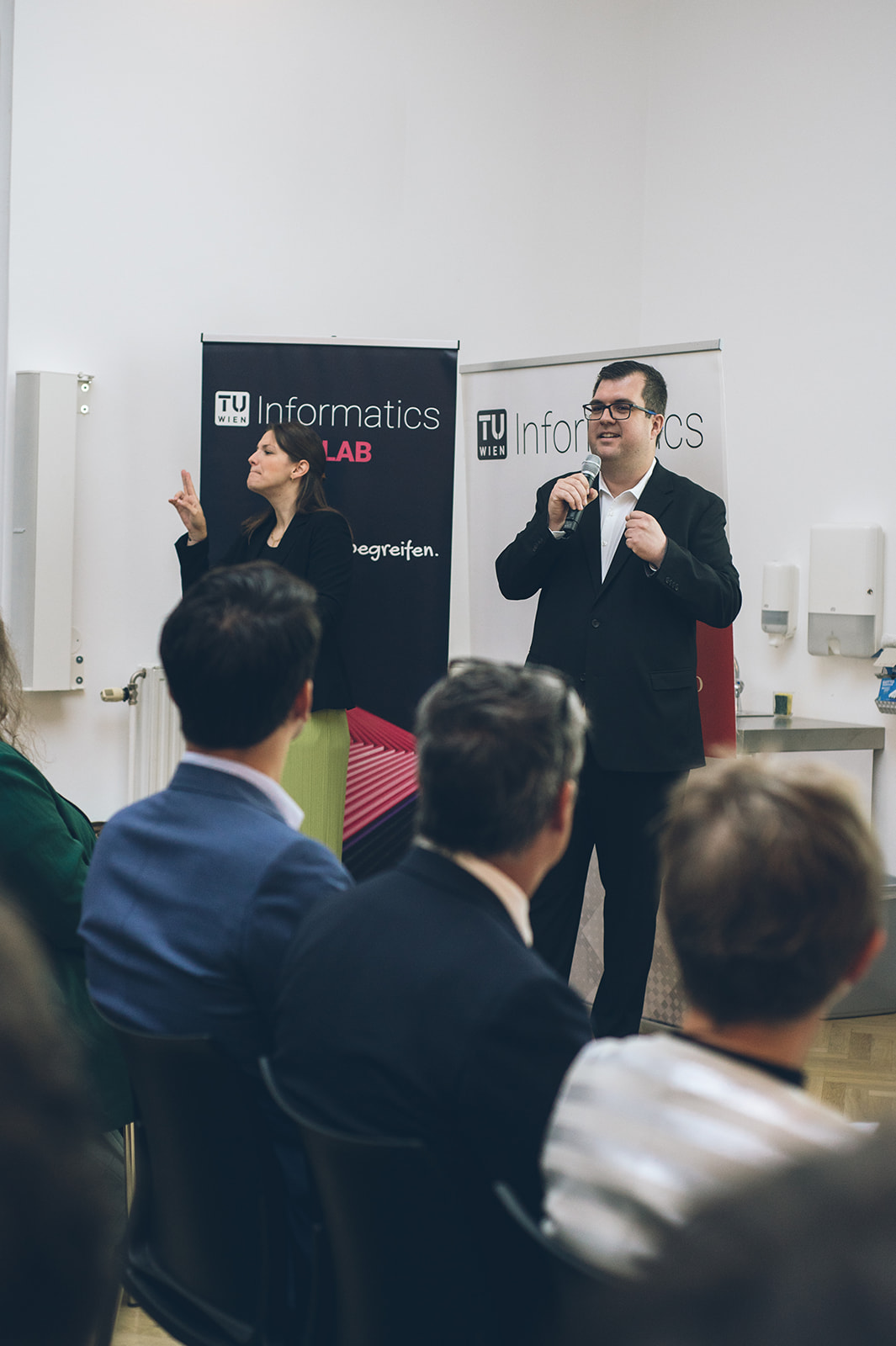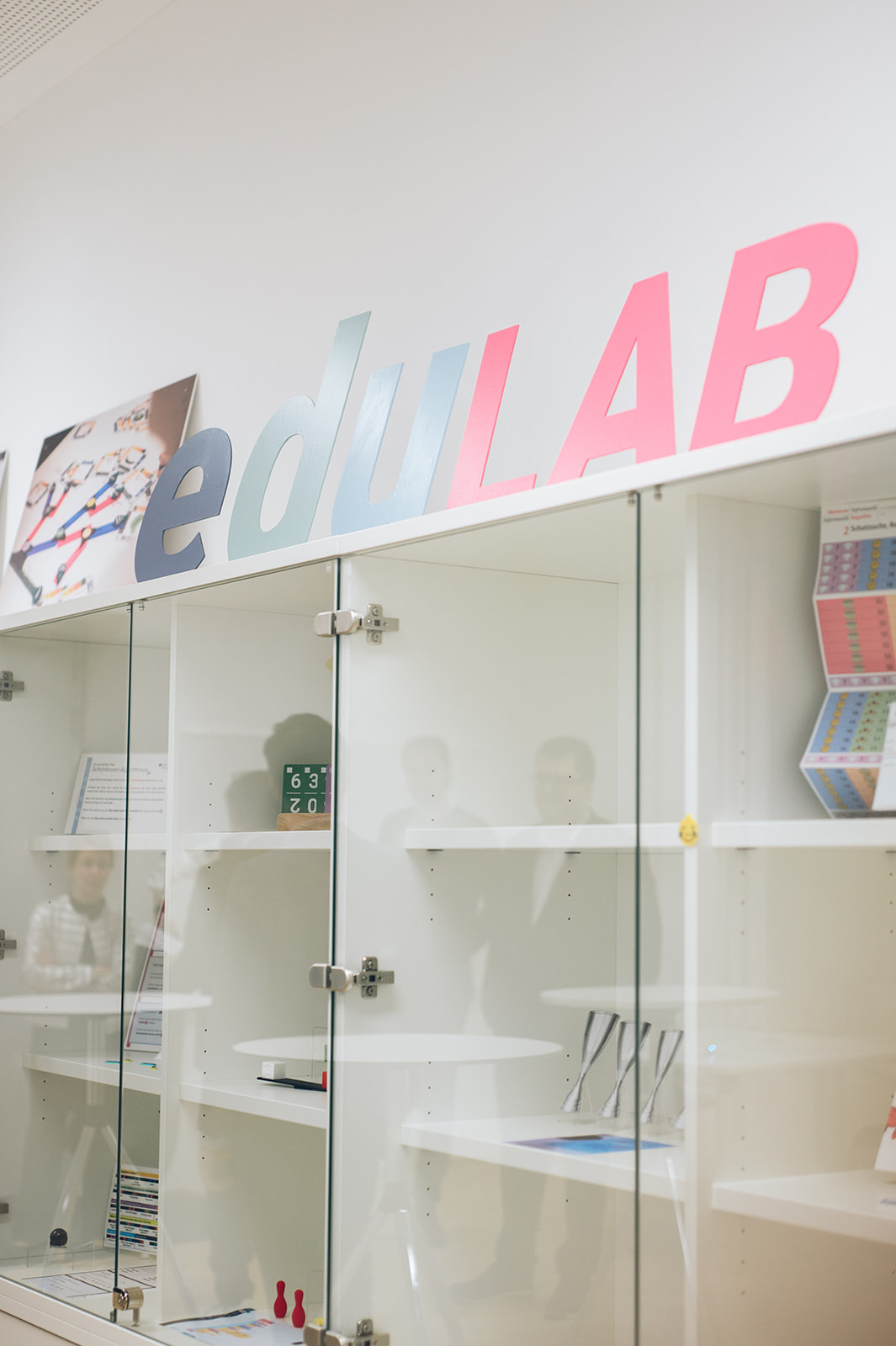René Röpke, head of the TU Wien Informatics eduLAB and lead of the CTS//circle.didactics , moderated the event and invited the audience to view and experience the new rooms of the TU Wien Informatics, in the heart of the Informatics building at Favoritenstraße 9-11 in 1040 Vienna.
In her welcome address, Dean Gerti Kappel underlined TU Wien’s strong commitment to informatics education. She highlighted how the eduLAB has grown from working with high school students to now engaging even elementary school children — and called for a mandatory, graduation-relevant informatics subject in Austrian schools. Such a step, she argued, is crucial to strengthen digital sovereignty, counter misinformation, and reduce workforce and gender gaps in the tech sector.
In support of her call for action, rector Jens Schneider emphasized the importance of introducing digital education early on. He described the eduLAB as a space for hands-on learning and creativity that perfectly fits TU Wien’s mission of encouraging critical thinking and innovation.
Education Minister Christoph Wiederkehr stressed the need to prepare young people for the digital realities of the 21st century. He highlighted the importance of media literacy and critical thinking — not merely as the transfer of knowledge, but as the development of lasting competencies.
A highlight was the keynote by Tobias Kohn, head of the Chair for Computer Science Didactics at the Karlsruhe Institute of Technology (KIT). He explored one of computer science’s biggest teaching challenges: the “Black Box” problem. Computers often hide their inner workings, making it difficult for learners to understand how they function — especially with today’s complex AI systems. Kohn argued that true informatics competence can only grow through transparency and understanding. His call to “open the Black Boxes” aligns perfectly with the eduLAB’s mission: making computing tangible through hands-on, experiential learning.
The event also featured the VCLA Award Ceremony by the Vienna Center for Logic and Algorithms. The competition, titled “Humans and Machines in 2035”, invited students from across Austria to imagine life with AI in ten years. Out of 128 submissions, prizes were awarded by VCLA chairs Agata Ciabattoni and Stefan Szeider.
A heartfelt thank you goes to our sponsors and supporters — Frequentis, Let’s Empower Austria (LEA), Siemens, and the Vienna Science and Technology Fund (WWTF) — for their ongoing commitment to the eduLAB’s mission.
More informationen about eduLAB available on https://edulab.ifs.tuwien.ac.at/



Photos: © Amélie Chapalain | TU Wien Informatics